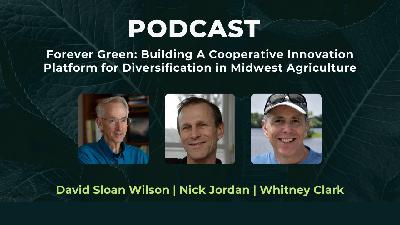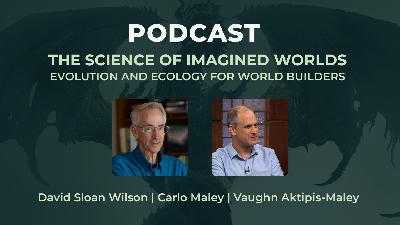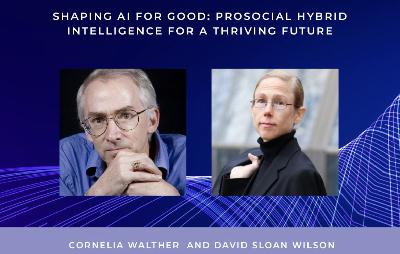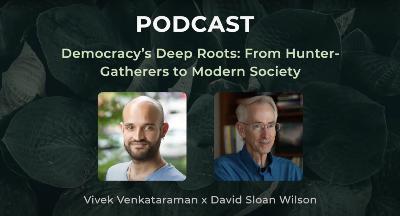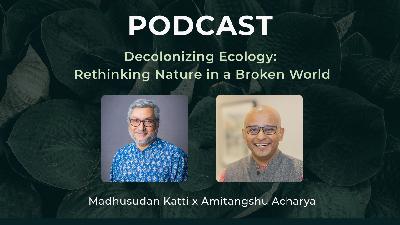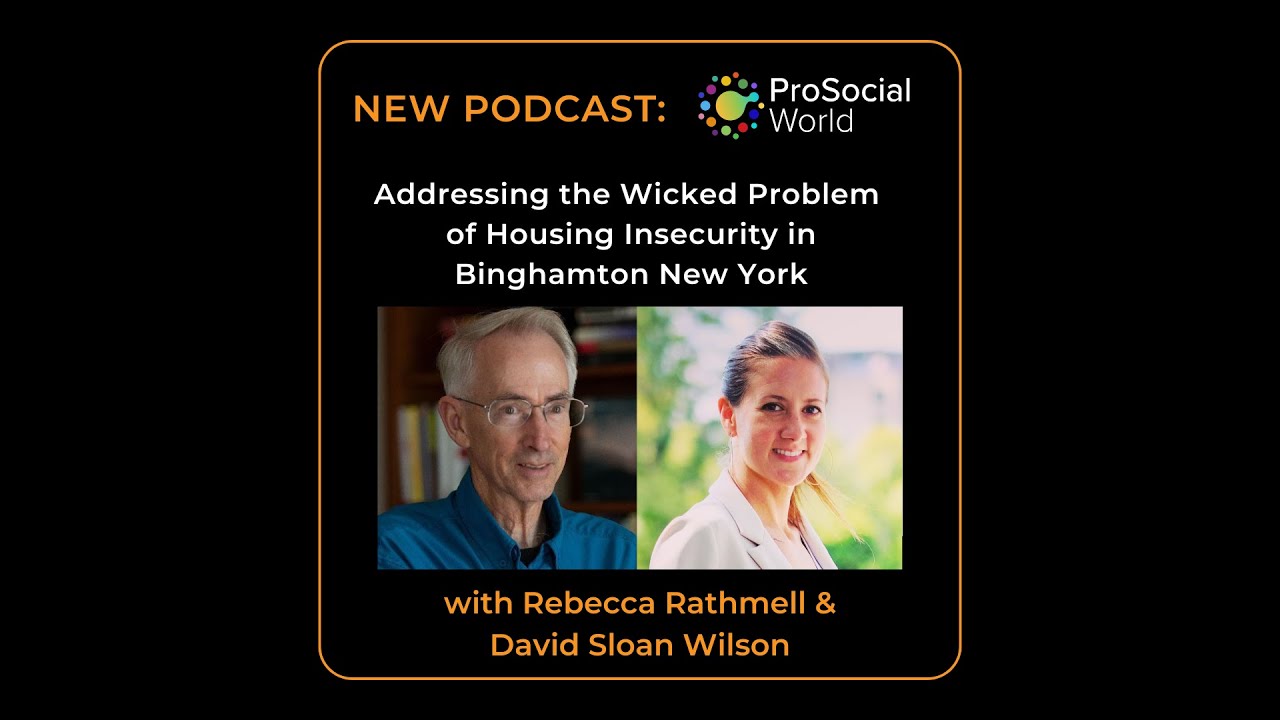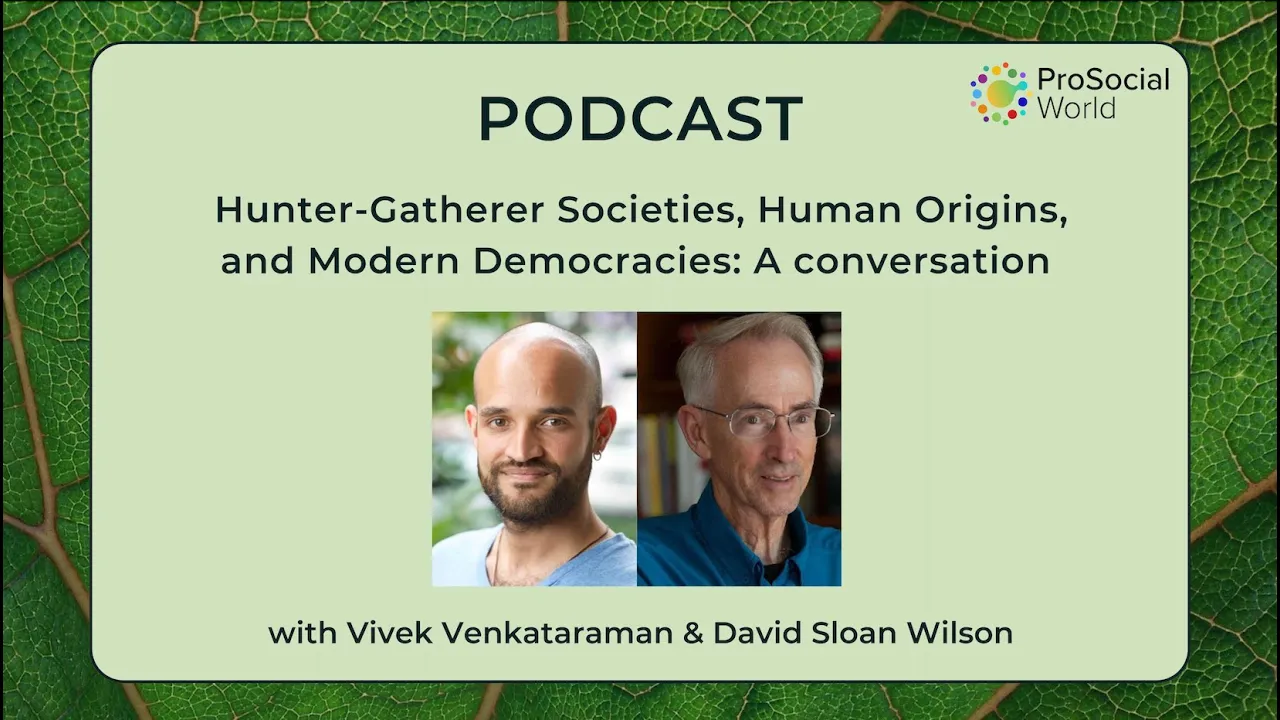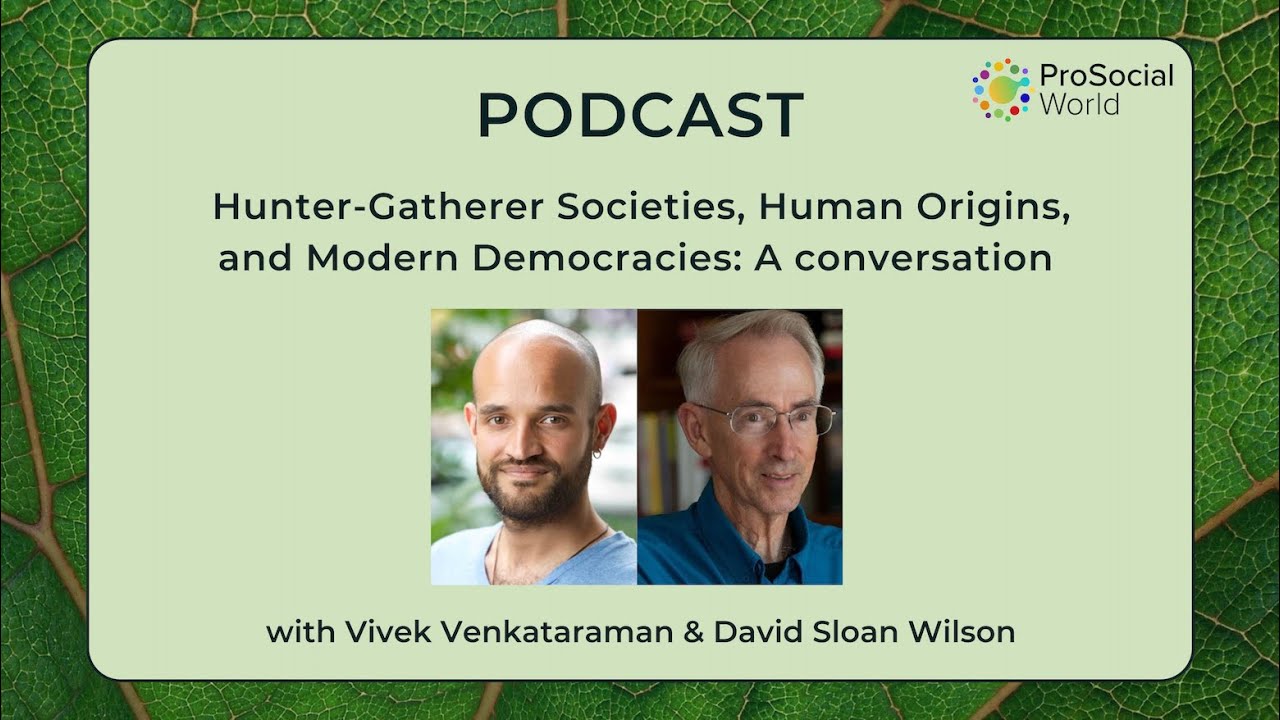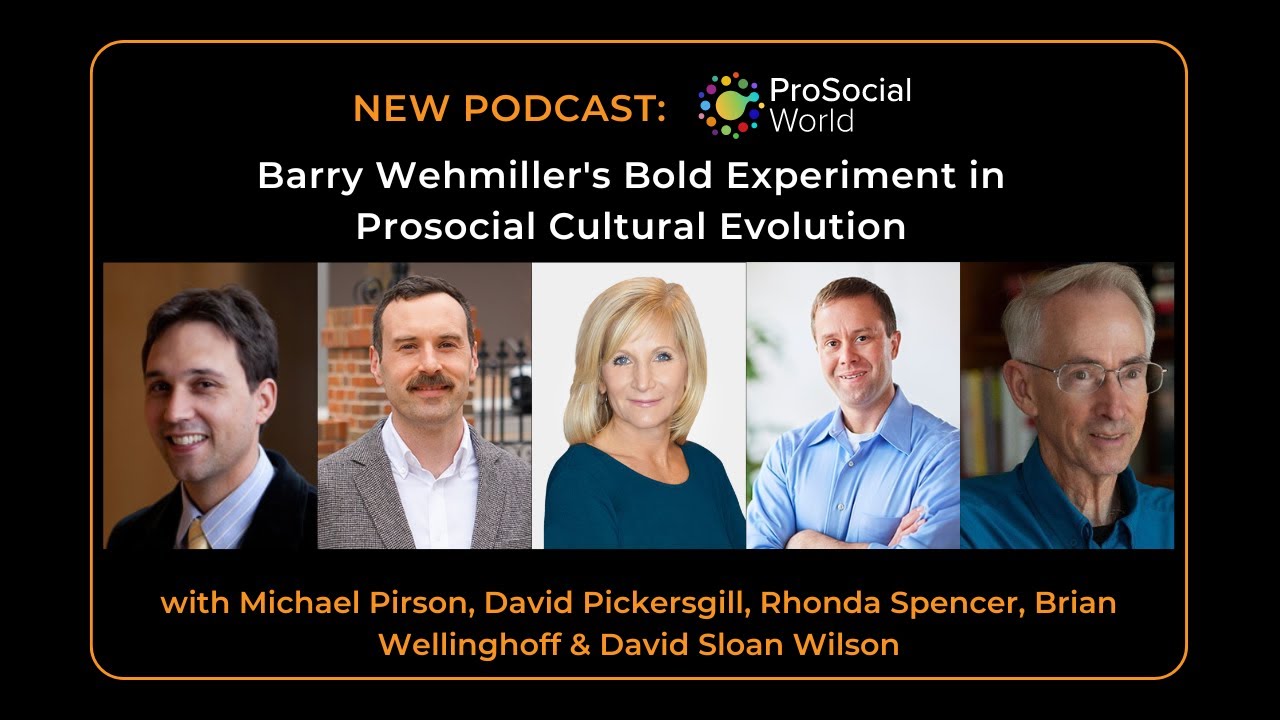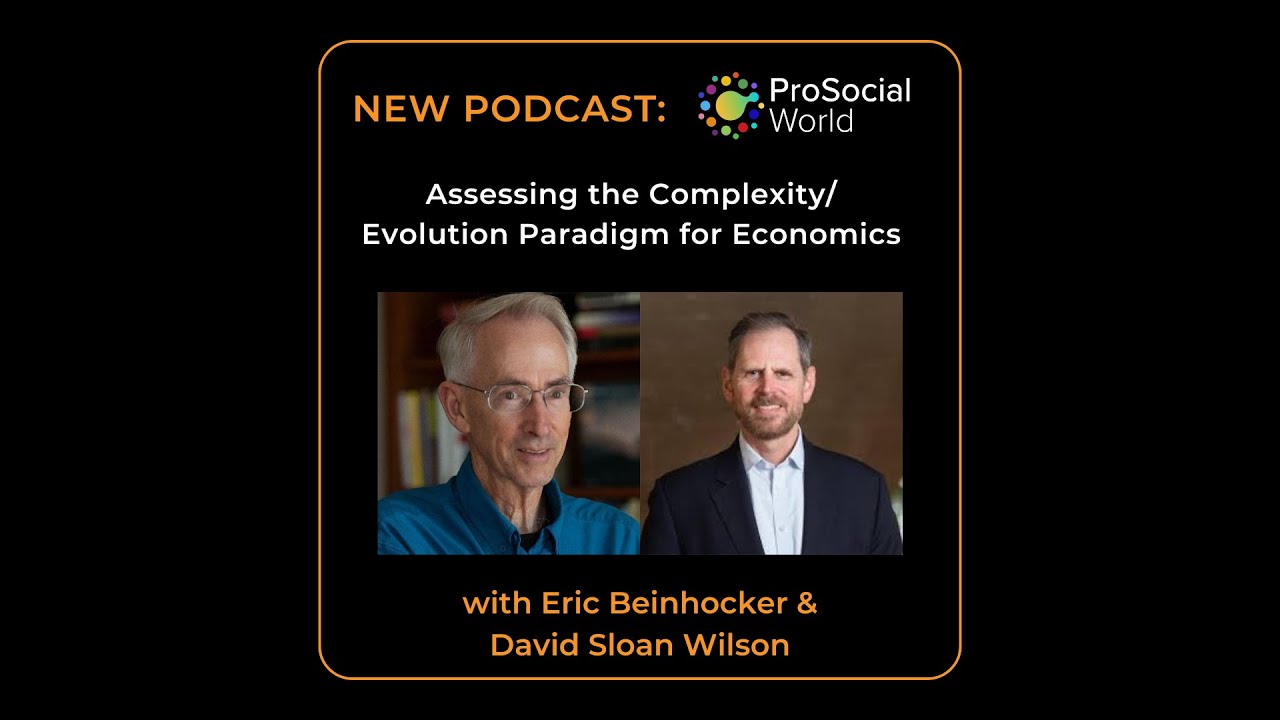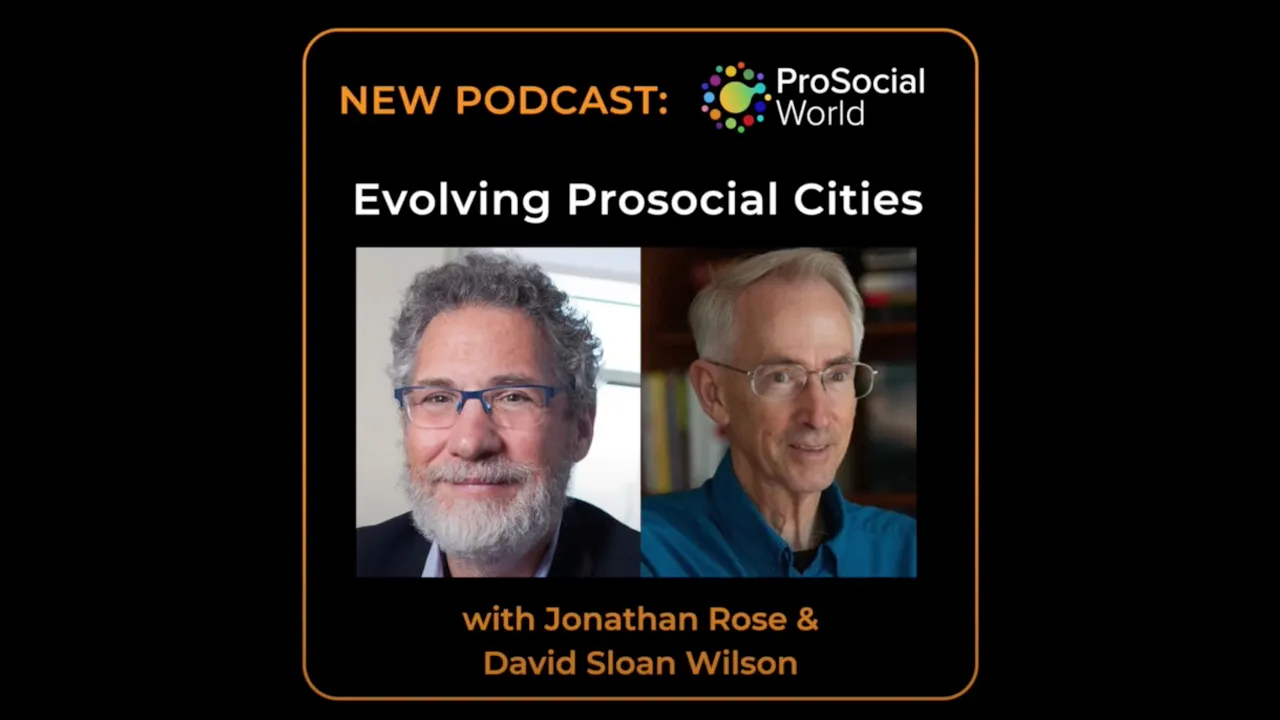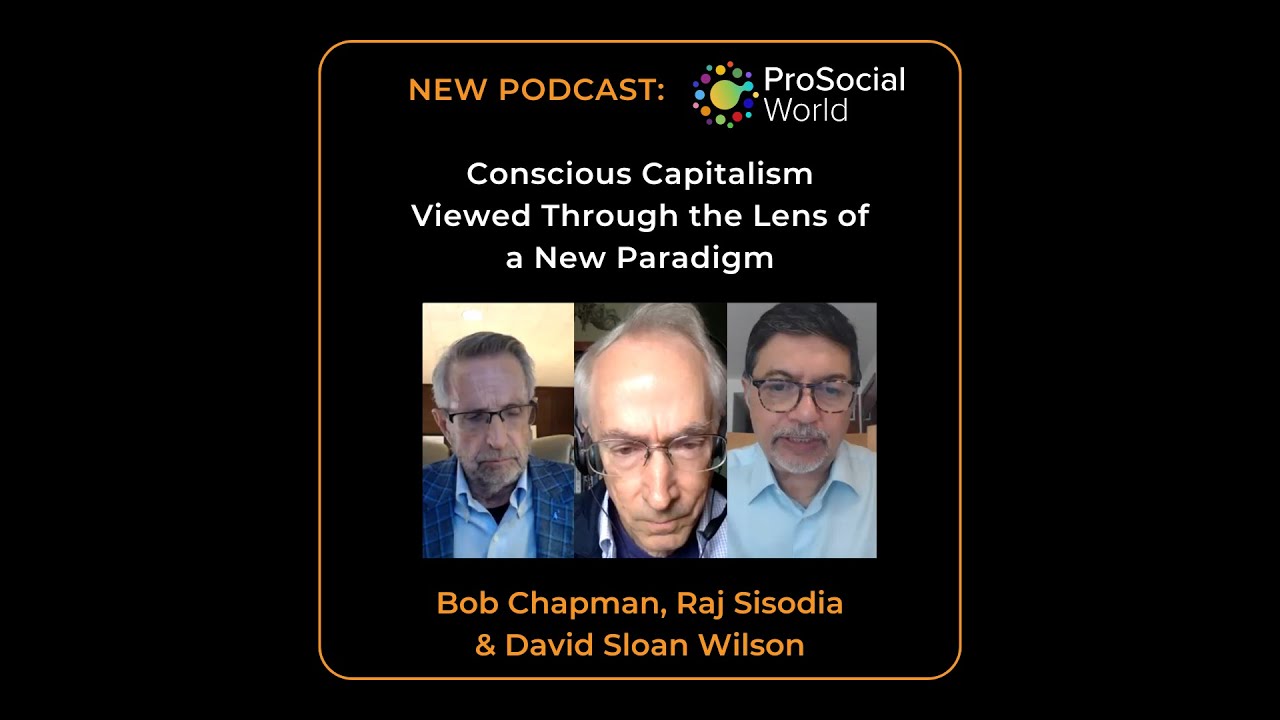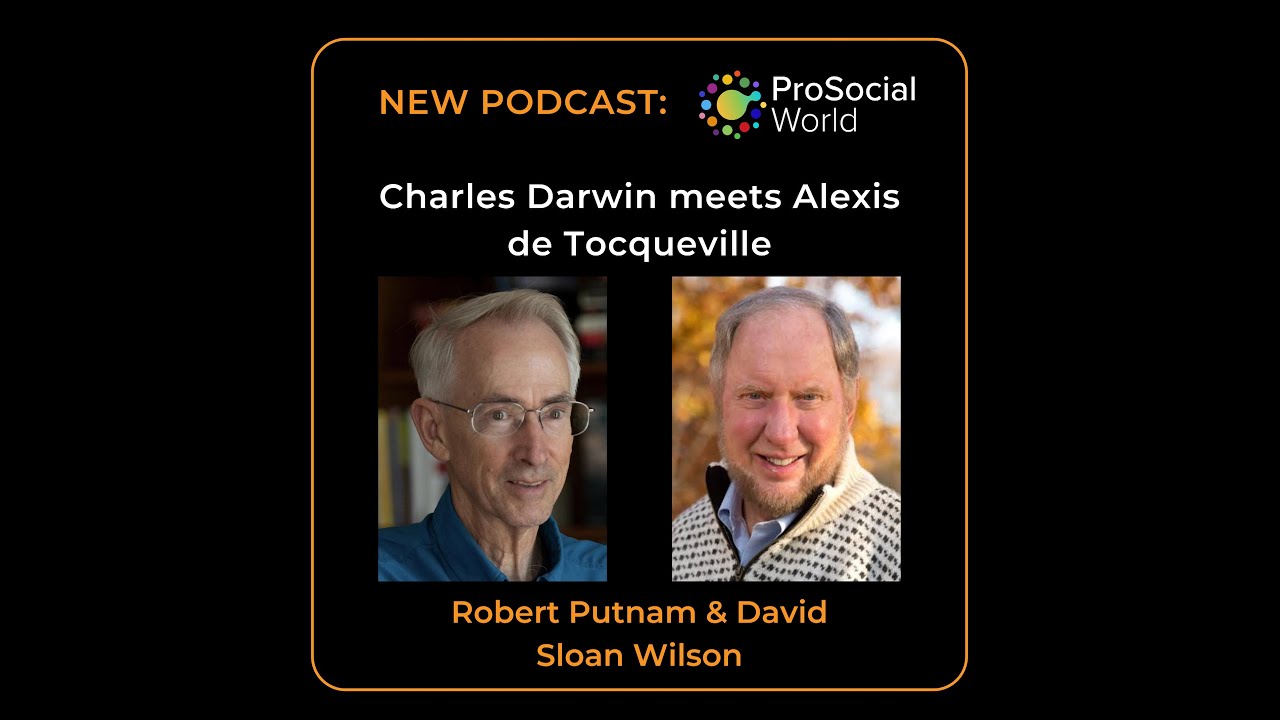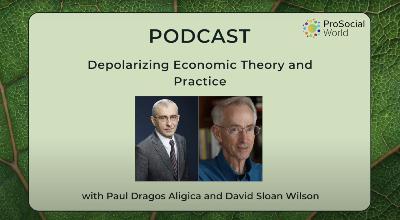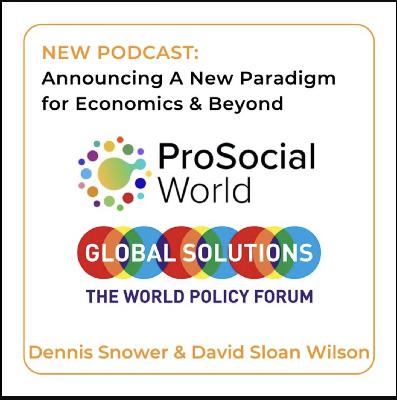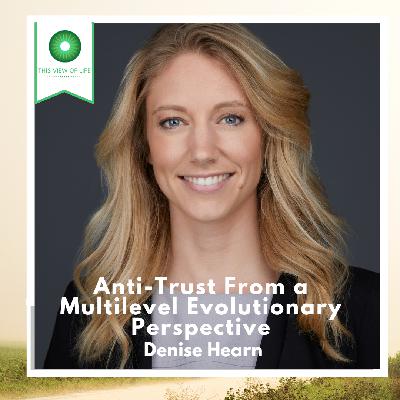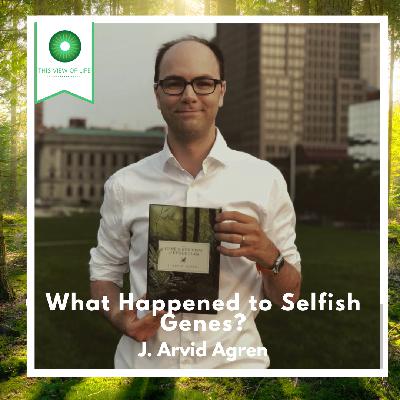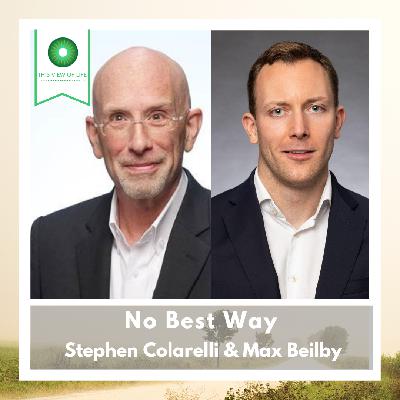Discover This View of Life
This View of Life

This View of Life
Author: This View of Life
Subscribed: 41Played: 1,832Subscribe
Share
Description
This View of Life takes a deep dive with the best and brightest thinkers on anything and everything from an evolutionary perspective. TVOL is a product of the non-profit ProSocial World and hosted by co-founder and President David Sloan Wilson.
55 Episodes
Reverse
David Sloan Wilson speaks with Professor Nick Jordan and Whitney Clark, Executive Director of Friends of the Mississippi River, about their work on the Forever Green Initiative – a regional effort to scale regenerative agriculture in the Upper Midwest. They reflect on seven years of cross-sector collaboration to develop new crops and farming systems, and how their partnership with ProSocial World has helped strengthen the initiative.
Join David Sloan Wilson in conversation with Carlo Maley and Vaughn Aktipis-Maley as they explore how evolutionary science can inspire deeper, more internally consistent worldbuilding. Based on their recent publication Evolution and Ecology for World Builders, this episode blends fantasy storytelling with real-world biology to ask: What makes a creature believable? What makes a society work? And what can fiction teach us about cooperation in reality?
AI is no longer a distant future - it’s shaping our lives right now. But what if we could design it not just to be smart, but to be good? In this powerful conversation, Cornelia Walther and evolutionary biologist David Sloan Wilson explore how we can build AI systems that truly serve people and the planet. They dive into the concept of Prosocial AI, technology that’s designed to support human connection, equity, and environmental sustainability—and the emerging field of hybrid intelligence, where human empathy and creativity team up with AI’s speed and precision. You’ll hear how we can deliberately shape AI with inclusive voices, transparent practices, and a strong ethical foundation to ensure it aligns with our highest values. From development to deployment, this episode outlines a path forward: one where technology empowers communities and nurtures a healthier, fairer world. Whether you're an AI enthusiast, a changemaker, or simply curious about how tech can uplift humanity, this is a conversation you won’t want to miss.
What if the roots of democracy run far deeper than ancient Greece or Enlightenment Europe, but back to our evolutionary origins as humans? In this thought-provoking conversation, evolutionary anthropologist Vivek Venkataraman and renowned scientist David Sloan Wilson dig into how early human societies, particularly hunter-gatherers, managed to balance individual freedom with the needs of the group. Long before constitutions and parliaments, our ancestors developed powerful, organic systems for cooperation, decision-making, and fairness. This discussion explores how evolution shaped us into an ultra-cooperative species, and what modern societies can learn from these ancient ways of living. The implications aren’t just academic; they offer practical insights for strengthening both formal and grassroots democratic governance today, from local communities to global systems. Whether you're into anthropology, politics, or just curious about what it really means to live well together, this is a conversation that bridges past and future in a surprising and meaningful way.
A conversation between Madhusudan Katti and Amitangshu Acharya Join us for a thought-provoking virtual dialogue exploring how colonial worldviews have shaped modern ecology - and what it means to decolonize our relationship with nature in an era of social and environmental upheaval. Building on themes from the This View of Life series “Decolonizing Science", ecologist Madhusudan Katti and writer-researcher Amitangshu Acharya delve into questions at the intersection of science, history, and justice. Together, they’ll challenge dominant narratives and invite us to reimagine ecological knowledge that is rooted in compassion, context, and community.
Originally published on September 9, 2024
Hunter-gatherer societies are fascinating in their own right and--with appropriate caution--a major source of insight about our ancestral past, stretching back to our origin as a species. Remarkably, hunter-gatherer societies also have much to teach us about modern Democratic governance. Vivek Venkataraman is an idea guide to this subject, with a background in philosophy, primatology, and human evolutionary biology, along with direct experience living with and researching indigenous people in Malaysia. Originally published January 29, 2025.
Originally published on January 8, 2025. Hunter-gatherer societies are fascinating in their own right and--with appropriate caution--a major source of insight about our ancestral past, stretching back to our origin as a species. Remarkably, hunter-gatherer societies also have much to teach us about modern Democratic governance. Vivek Venkataraman is an idea guide to this subject, with a background in philosophy, primatology, and human evolutionary biology, along with direct experience living with and researching indigenous people in Malaysia. Check out the resources, articles, and more mentioned in this conversation! 4:21 A Primate's Memoir: A Neuroscientist's Unconventional Life Among the Baboons By Robert M. Sapolsky ·2007 12:37 The Goodness Paradox The Strange Relationship Between Virtue and Violence in Human Evolution By Richard Wrangham · 2019 14:30 Hierarchy in the Forest The Evolution of Egalitarian Behavior By Christopher BOEHM · 2009 14:35 and 22:41 Moral Origins The Evolution of Virtue, Altruism, and Shame By Christopher Boehm · 2012 17:52 A Story of Us A New Look at Human Evolution By Lesley Newson, Peter J. Richerson · 2021 22:51 Morality from an Evolutionary Perspective with Simon Blackburn: https://www.prosocial.world/posts/morality-from-an-evolutionary-perspective-with-simon-blackburn 29:06 and 40:56 Man the Hunter Symposium 33:31 Eating Christmas in the Kalahari Richard Borshay Lee 37:23 Co-Residence Patterns in Hunter-Gatherer Societies Show Unique Human Social Structure Kim R. Hill , et al. 44:43 Variability in the organization and size of hunter-gatherer groups: Foragers do not live in small-scale societies 46:28 The Evolution of Subjective Commitment to Groups: A Tribal Instincts Hypothesis Peter J. Richerson and Robert Boyd, 2011 48:23 Human social organization during the Late Pleistocene: Beyond the nomadic-egalitarian model Manvir Singh and Luke Glowacki, 2022 50:20 The Dawn of Everything A New History of Humanity By David Graeber, David Wengrow · 2021 57:19 Society Against the State: Essays in Political Anthropology by Pierre Clastres, 1987
Who is Barry-Wehmiller (BW)? Not a person, but a manufacturing corporation and star attraction of the Conscious Capitalism movement. If you are familiar with this movement, you might have read Everybody Matters: The Extraordinary Power of Caring for Your People Like Family, by CEO Bob Chapman and Raj Sisodia, co-founder of the Conscious Capitalism movement. Or perhaps a Harvard Business School case report titled Truly Human Leadership at Barry-Wehmiller. But BW deserves to become known far beyond its current circle of fame. Not only has it created an extraordinary culture of caring for itself, but it has replicated its culture in over 140 other companies that it has acquired--or rather adopted, to use its preferred word. Stated in scientific terms that can be understood beyond the business world, BW has conducted a bold experiment in prosocial cultural evolution and replicated it 140 times. An earlier podcast with Chapman and Sisodia views BW through a distinctively evolutionary lens. This podcast covers the same ground in more detail with three senior staff members—Rhonda Spencer, Brian Wellinghof, and David Pickersgill. We are also joined by Michael Pirson, James A.F. Stoner Chair for Global Sustainability at Fordham University’s Gabelli School of Business, who works closely with BW staff to promote the relevance of BW throughout the business world. Originally published on September 16, 2024. https://www.prosocial.world/posts/barry-wehmillers-bold-experiment-in-prosocial-cultural-evolution
The first book-length articulation of an economic paradigm based on complex systems science and evolutionary science was Eric Beinhocker's The Origin of Wealth, published in 2006. He is currently Professor of Public Policy Practice at Oxford's Blavatnik School of Government and Executive Director of INET Oxford. Eric joins me to assess progress during the last 18 years and prospects for the future. One of Eric's recent essays that we discuss is titled Toward a New Ontological Framework for the Economic Good. Originally published on August 7, 2024. https://www.prosocial.world/posts/assessing-the-complexity-evolution-paradigm-with-eric-beihocker
Few people know more about cities than Jonathan Rose, author of The Well-Tempered City: What Modern Science, Ancient Civilizations, and Human Nature Teach Us About the Future of Urban Life. Jonathan is a practitioner in addition to a scholar. His urban development company is at the forefront of "building wellbeing through communities of opportunity". In our conversation, we discuss how two bodies of knowledge that are new within the last 50 years--complex systems science and generalized Darwinism--can help to catalyze prosocial cultural evolution at the scale of whole cities. Originally published on August 10, 2024. https://www.prosocial.world/posts/evolving-prosocial-cities-with-jonathan-rose
Conscious capitalism is well known as a business movement that goes against almost everything that is taught in business school. However, the same movement makes perfect sense when viewed through the lens of a new paradigm for economics and business based on a combination of complex systems science and evolutionary science. I discuss this paradigm shift with two leaders of the Conscious Capitalism movement Raj Sisodia and Bob Chapman. Originally published May 10, 2024. www.prosocial.world/posts/conscious-capitalism-viewed-through-the-lens-of-a-new-paradigm-with-raj-sisodia-and-bob-chapman
Michael Muthukrishna's new book A Theory of Everyone is the latest in a lineage of authors that include Peter Richerson and Robert Boyd (Culture and the Evolutionary Process, Not By Genes Alone) and Joseph Henrich (Secret of Our Success, WEIRDest People in the World). All of them illustrate what I call completing the Darwinian revolution in my own book This View of Life. In this podcast, Michael and I discuss the paradigmatic nature of generalized Darwinism and how it can improve our ability to accomplish positive change in the real world. Originally published on May 10, 2024. https://www.prosocial.world/posts/a-theory-of-everyone-as-a-new-paradigm-with-michael-muthukrishna
In 1831, two youths embarked upon voyages that would change the way that we view the world today. The first was Charles Darwin and the second was Alexis de Tocqueville. Both addressed the nature of competition, cooperation, and community in ways that are highly relevant to the social dilemmas facing us today. Join the legendary Robert Putnam and me as we update these pioneers on what Tocqueville called "self interest, rightly understood." Originally published May 20, 2024. https://www.prosocial.world/posts/updating-darwin-and-tocqueville-on-self-interest-rightly-understood-with-robert-putnam
Guru Madhavan is Norman R. Augustine Senior Scholar, Senior Director of Programs, and Director of the Forum on Complex Unifiable Systems (FOCUS) at the US National Academy of Engineering. His new book is on how to solve wicked problems anywhere, but it is also rooted in a particular place--Binghamton, New York--where Guru did his graduate training at Binghamton University and where we first met and started working with each other. Join me as we discuss the general nature of wicked problems and how Binghamton and Binghamton University can become a city and university that is adept at solving them. Links: Guru's first book: Applied Minds: How Engineers Think Guru's new book: Wicked Problems: How to Engineer a Better World My earlier print conversation with Guru: Systems Engineering as Cultural Group Selection My short essay with Guru titled Complex Maladaptive Systems Originally published on February 29, 2024 https://www.prosocial.world/posts/wicked-problems-and-how-to-solve-them
In my writing on generalized Darwinism as a new paradigm for economics and public policy, I stress that it doesn't fall into any current ideological camp. It isn't left, right, or libertarian and draws upon the valid elements of all three. This conversation with the political economist and social philosopher Paul Dragos Aligica illustrates what I mean. Paul is KPMG Professor of Governance at the University of Bucharest and Senior Research Fellow in the F.A. Hayek Program for Advanced Study in Philosophy, Politics and Economics at George Mason University's Mercatus Center. Most people associate the Mercatus Center with free market fundamentalism--after all, mercatus is the latin word for market--but the real situation is far more complex and consilient with new paradigm thinking. My conversation with Paul therefore contributes to the depolarization of economic theory and practice--putting the ideas to work across all social contexts and scales. Originally released on February 21, 2025. https://www.prosocial.world/posts/depolarizing-economic-theory-and-practice-with-paul-dragos-aligica
Is it time to fundamentally rethink economics - its theoretical foundations, activities and processes; its purpose and goals? How should we reimagine and redesign our economic models to better reflect and serve human needs and wants, and the flourishing of all life on our one planet? It is often said that the world faces challenges that are complex and systemic. But in fact, the world is a complex, interconnected “system of systems”. These complexities and interconnectivities amplify the global challenges facing us, whether economic, social or environmental. They also mean that a deep understanding of the behaviour of these systems is critical to solving these problems for the long-term. Leading evolutionary theorist David Sloan Wilson and influential economist Dennis Snower have long advocated for an improved understanding of economics as a complex system. Across a recent series of major articles, they argue for a paradigm shift away from the orthodox, neoclassical model of economics, which focuses on individual challenges to be tackled through decisions by individual decision-makers and views ‘externalities’ as a phenomenon to be ‘corrected’ through government intervention, in favour of a new multilevel paradigm, based on insights from evolutionary science. This is a model that takes proper account of the complexity of our social natures and relations, and the centrality of collective challenges in our lives – challenges that can only be effectively tackled through a carefully orchestrated, context-specific combination of social, political and institutional mechanisms. Though such a paradigm shift has long proved elusive, Snower and Sloan Wilson argue that is an achievable goal, and one that’s more necessary now than ever before, at a time of economic and ecological crisis, when new narratives and new modes of cooperation will be critical to building successful multilateral alliances for innovation and change.
Increasingly, policymakers, investors, and advocates recognize that the neoliberal theory of economic organization – laissez faire – is a failed experiment. However, certain areas of law – particularly antitrust law are still beholden to false econometric notions about how markets operate, which influences legal interpretation, case precedent, and ongoing debates about reviving antitrust’s role in the political economy. Can Multilevel Cultural Evolution provide a new paradigm for anti-trust law, along with the rest of economics? Denise Hearn is a writer, advisor, and project catalyzer who works with investors, policymakers, and organizations who want to use their power to support a living and equitable future. Hearn serves as a Senior Fellow at the American Economic Liberties Project and co-lead of the Access to Markets initiative. Hearn also serves as Board Chair of The Predistribution Initiative which aims to improve investment structures and practices to address systemic risks like inequality, biodiversity loss, and climate change. Denise co-authored The Myth of Capitalism: Monopolies and the Death of Competition with Jonathan Tepper — named one of the Financial Times’ Best Books of 2018. Her writing has been featured in publications such as The Financial Times, The Globe and Mail, Stanford Social Innovation Review, Responsible Investor, and The Washington Post. Hearn currently authors the Embodied Economics newsletter. David Sloan Wilson is one of the foremost evolutionary thinkers and gifted communicators about evolution to the general public. He is SUNY Distinguished Professor of Biology and Anthropology Emeritus at Binghamton University and President of the nonprofit organization Prosocial World, whose mission is "To consciously evolve a world that works for all." His most recent books are This View of Life: Completing the Darwinian Revolution, Prosocial: Using Evolutionary Science to Build Productive, Equitable, and Collaborative Groups (with Paul Atkins and Steven C. Hayes), and his first novel, Atlas Hugged: The Autobiography of John Galt III.
J. Arvid Agren's book The Gene's Eye View of Evolution (Oxford University Press, 2021), is a highly praised scholarly account of the concept of selfish genes, which Richard Dawkins made hugely popular in 1976. Dawkins himself calls Agren's book "the most thorough reading of the relevant literature that I have ever encountered...he gets it right." But what does this mean? In this nearly two hour conversation, I take a deep dive with Agren into the history and current status of the selfish gene concept. You might be surprised by how much we agree upon and how much the concept of selfish genes has been scaled down, compared to its original pretensions.
Max Beilby and Steve Colarelli discuss the application of evolutionary psychology to Human Resource Management. They cover Steve’s academic career, and his books No Best Way: An Evolutionary Perspective on Human Resource Management and The Biological Foundations of Organizational Behavior (which Steve co-edited with his colleague Richard Arvey). They also explore the impacts of the coronavirus pandemic on the world of work. Stephen Colarelli is professor of psychology at Central Michigan University. His research is concerned with how evolutionary theory and evolutionary psychology can influence how we think about, conduct research on, and manage behavior in organizations. Max Beilby is a professional organizational psychologist as well as a member of the Human Behavior & Evolution Society and the Association for Business Psychology. Max has written extensively for This View of Life Magazine and is a member of TVOL’s Business Action Group, which is focused on understanding and improving business from an evolutionary perspective. Anyone is free to join and take part of our networking events, discussions, and collaborative projects.


